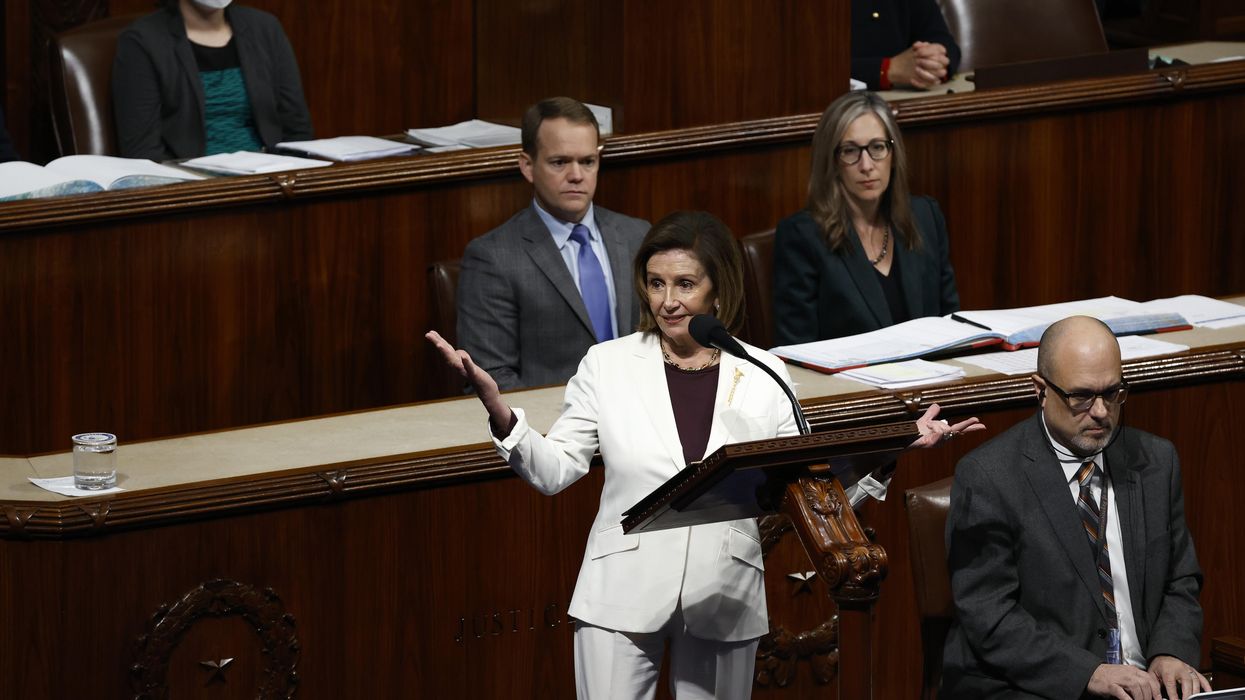Guillermo is the CEO of Ignite, a political leadership program for young women.
Nancy Pelosi's decision to step down from House leadership brings up strong feelings. But it also has a similar impact on generations of women from across the political spectrum. I run an organization that engages young women to embrace political ambition and run for political office. Many of us saw Speaker Pelosi's achievement and realized we could go further than we realized. It is hard to overstate the impact that her career has had on our collective ambitions.
Pelosi has addressed hundreds of young women at Ignite events. She is always generous with her time. She takes a deep, personal interest in the future careers of young women she meets. Since she announced her decision not to run for a leadership position, I've heard from dozens of these young women across the political spectrum.
They have sent me photographs of them standing with Pelosi at Ignite events. They've told me, "This is the moment I realized I could run for office." Her interest in their ambitions is what convinced them that they, too, had the potential to lead. In the recent midterm elections, several Ignite alumni ran for office and won. Many of them told me that seeing Pelosi’ impact and leadership influenced their own journey in deciding to run.
This is 2022, but women still face tremendous barriers to pursuing a political career. Ten percent of senators are named Jon or John. Fewer than 30 percent of lawmakers are women. People ask men, meanwhile, far more often to run for office than they do women. And when they do ask women to run, it takes a lot more to persuade them than it does young men. Against that backdrop, Pelosi's career is all the more remarkable. She is still often pictured as the only woman in rooms full of men. She was elected the first female speaker of the House in 2007. At that point she became the highest-ranking woman in U.S. history. That achievement stood until the swearing-in of Vice President Kamala Harris in 2021.
Pelosi helped usher through reforms to our health care laws. She helped repeal military policies barring LGBTQ+ from serving. She supported same-sex marriage. She has been unafraid to stand up to China on its human rights record. These are generational issues. They have shifted global culture. They have enjoyed bipartisan support.
Several of Pelosi's staff cried as they applauded her when she walked from the floor. In politics, tears are a rarity. Such open displays of emotion aren't strategic. But the significance of Pelosi's decision cut through that. I also admired her choice to wear a white suit, speaking to the legacy of the women's suffrage movement. Let's not forget that women only got the vote in this country in 1919. That's just 21 years before Pelosi was born.
It means a lot, too, that Pelosi spoke about it being time for "a new generation to lead." The 2022 election was a “youth wave,” with near-historic numbers of young people turning out to vote. Young people turned out at their highest rates in states with razor-thin margins. Gen Z and millennials are on their way to becoming part of the largest voting bloc. They care about reproductive justice, mental health, student loans and more. Candidates who want to win need to speak to the issues young voters are passionate about. It is reassuring to see Pelosi recognizing that a new generation is ready to carry the torch.
We also should not dismiss that Pelosi's decision comes less than a month after a break-in at her home. The man has told investigators he intended to break her kneecaps. She has told the press that the attack – in which her husband was badly harmed – is a factor in her decision. We need to reflect on how our society has emboldened this kind of violence. We need to speak more about the barriers powerful women face and we need to pay vocal tribute to their courage in breaking through them.
In the meantime thank you, Nancy Pelosi, for the changes you have made possible.



















Trump & Hegseth gave Mark Kelly a huge 2028 gift